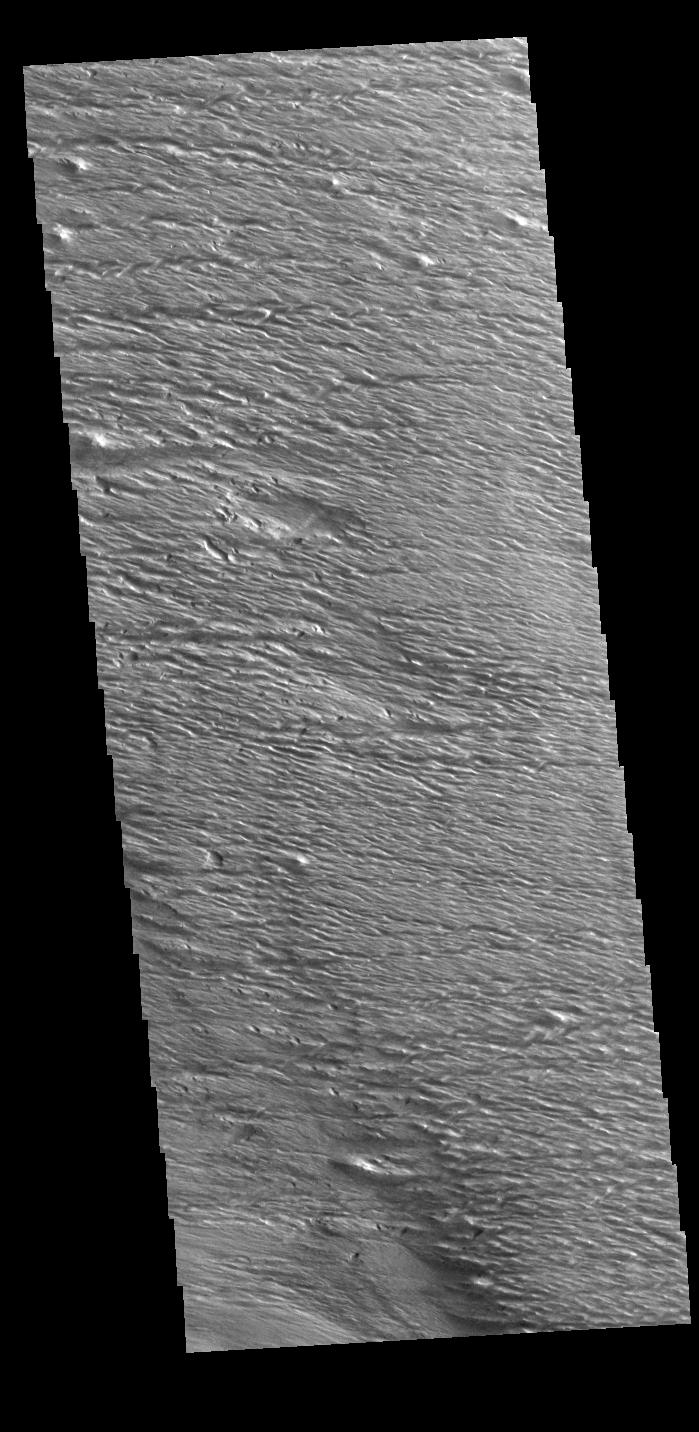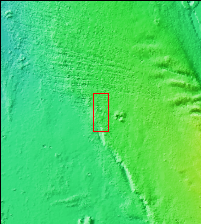
|
Where the Wind Blows
- Click the image above for a larger view
- Full-Res JPEG (699 x 1432) (147.1 kB)
- Full-Res TIFF (699 x 1432) (774.3 kB)
Caption:

Context image
Wind is one of the remaining active processes altering the surface of Mars. In regions of long term unidirectional winds, the dust and sand is winnowed away. In places with poorly cemented surface materials the wind and entrained sand with blast the surface causing linear erosion like that seen in today's VIS image. This image is located at the equator near Gordii Dorsum.
Orbit Number: 77484 Latitude: 5.04807 Longitude: 213.038 Instrument: VIS Captured: 2019-06-03 08:10
Background Info:
Please see the THEMIS Data Citation Note for details on crediting THEMIS images.
NASA's Jet Propulsion Laboratory manages the 2001 Mars Odyssey mission for NASA's Science Mission Directorate, Washington, D.C. The Thermal Emission Imaging System (THEMIS) was developed by Arizona State University, Tempe, in collaboration with Raytheon Santa Barbara Remote Sensing. The THEMIS investigation is led by Dr. Philip Christensen at Arizona State University. Lockheed Martin Astronautics, Denver, is the prime contractor for the Odyssey project, and developed and built the orbiter. Mission operations are conducted jointly from Lockheed Martin and from JPL, a division of the California Institute of Technology in Pasadena.
Cataloging Keywords:
| Name | Value | Additional Values |
|---|---|---|
| Target | Mars | |
| System | ||
| Target Type | Planet | |
| Mission | 2001 Mars Odyssey | |
| Instrument Host | Mars Odyssey | |
| Host Type | Orbiter | |
| Instrument | Thermal Emission Imaging System (THEMIS) | |
| Detector | ||
| Extra Keywords | Dust, Grayscale, Thermal | |
| Acquisition Date | ||
| Release Date | 2019-07-16 | |
| Date in Caption | 2019-06-03 | |
| Image Credit | NASA/JPL-Caltech/ASU | |
| Source | photojournal.jpl.nasa.gov/catalog/PIA23334 | |
| Identifier | PIA23334 | |
